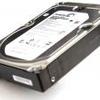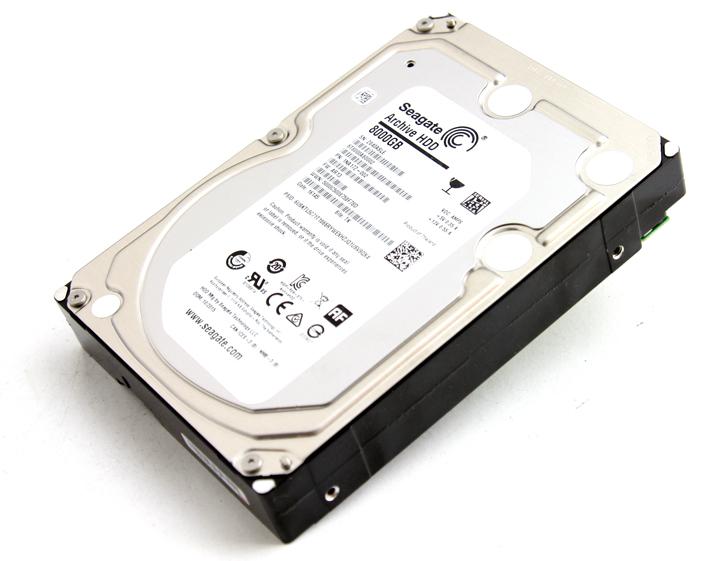Final Words & Conclusion
Final Words & Conclusion
For anyone that needs bank for buck in terms of volume storage, the Seagate Archive series simply offers tremendous value for money at roughly 3 cents per GB. Less than 250 EURO for 8 TB for a SATA3 based HDD simply oozes value. You however do need to realize the quirks though. You properly should not use this HDD as standalone drive for your OS, the IOPS performance on small files is just dreadful compared to even the most budget SSD you can find. However in the sequential performance side of things the Archive series makes a lot of sense and there it is plenty fast. You'll copy your movies with 100~150 MB/sec and as such the 8 TB HDD I'd classify as a good alternative to use in a NAS of additional storage unit next to say a fast SSD.
Performance
Performance versus value wise the HDD series is good enough, it is not fast with small block file writes, but consistent and good enough for an HDD. Sequential and linear (large MP3 / MKV / ISO) files will copy at very decent speeds ranging at 75 to 180 MB/sec depending on where that dog-slow magnetic head sits on the platters. This is plenty for NAS usage or as extra storage next to a fast storage unit that runs your OS. We would not recommend running an OS from this drive due to the slow small files performance.
Lifespan & Failure Rates
The Seagate Archive series does not have a track record for reliability. Several data-center tests have shown fairly high failure rates running up-to 5%. Unfortunately we can confirm that to be an issue. In the introduction I explained that I purchased two of these HDDs, setup in a NAS in RAID mirror. So if one drive fails our data integrity would remain intact. After two months one of the 8TB Seagate Archive HDDs died. While this can happen to any piece of hardware, it did make me wonder. It seems the up-to 5% failure rate could be a valid number.
And that is bothersome as especially with 8 TB of data on your HDD reliability should be Seagate's #1 priority. That said if you reverese the number, 95% of the drives do not run into any issues, but if you are among that 5%... that sucks as bad it did for me. Seagate offers a three year warranty with the Archive series HDDs though, so that at the very least is good. Depending on the store you purchased this drive a carry-in warranty will easily replace the HDD, ours was swapped out within 2 days. That said, it always helps to have Guru3D noted on our invoices.
I know not everybody likes blackblaze (datacenter) numbers, but I do consider them a decent guideline with the numbers they offer:
I do want to say here something specific, in a data-center a HDD is tortured 24/7, that's not representable for home or SOHO usage whatsoever, especially for a NAS drive as tested today. So you do need some margin of error here.
Concluding
Value for money wise you cannot beat the Seagate Archive series, 8 TB for under 250 EURO. That's a lot of storage for the money. The performance is what can be expected, OK with big files, dog slow writes with small files. But that is the nature of the mechanical HDD as we are spoiled rotten with SSDs these days. Also the Archive series already has it in its name, you store large files on it and archive them. As such the HDD is excellent for a NAS or secondary storage unit in your PC. But not as an OS drive. Surely an SSD can die as well, but the main worry with anything mechanical moving around up and down in a 3.5" casing is that the product has a much higher risk of failure. HDDs have proven to be a pain in the you know what. If you compare them to an SSD, the choice is obvious. But yeah the one huge benefit remains to be USD per GB / EURO per GB and that's where anno 2016 the HDD wins, but only there. That said, I cannot wait until SSDs get to the same price level as HDDs and with 4 TB SSDs reaching 25 cents per GB this year... the age of the dinosaur that is the HDD is counted for as within the next five years my vision is that HDDs will slowly phase out of the the PC infrastructure. Currently failure rates for most modern SSD are under 0.3% whereas HDDs sit at 3 to 5% with Seagate reaching the higher sealing of these numbers. I bought two of these, and yes one did die after two months. It has been replaced and my RAID unit is spinning along nicely ever since. But would I not have had a RAID mirror array, I would have lost almost 4 TB of data on that 8TB HDD.
The Seagate Archive series serve a need for high volume storage at low cost. Count your blessings and hope the HDD doesn't die. If it doesn't it offers true value for money.
Update June 2nd 2016 : I purchased two of these HDDs and huosed them in a NAS. Last December 2015 one died. And yesterday June 1st 2016 the other died. That's a 100% failure ratio and incredibly disappointing.
Recommended Downloads


.png)
